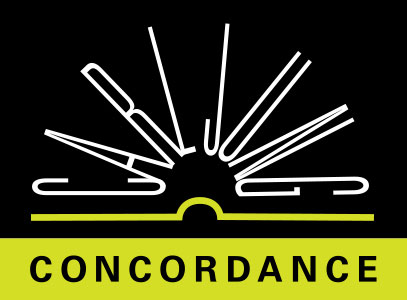Vision:
In a Primeval Forest
In a primeval forest. An elephant looms up menacingly. Then a large ape-man, bear, or cave-man threatens to attack the dreamer with a club (fig. 035). Suddenly the “man with the pointed beard” appears and stares at the aggressor, so that he is spellbound. But the dreamer is terrified. The voice says, “Everything must be ruled by the light”
Medieval version of the “wild man”
Codex Urbanus Latinus 899 (15th cent.)
VISION COMMENTARY
The multiplicity of nymphs has broken down into still more primitive components; that is to say, the animation of the psychic atmosphere has very considerably increased, and from this we must conclude that the dreamer's isolation from his contemporaries has increased in proportion. This intensified isolation can be traced back to vision 21, where the union with the unconscious was realized and accepted as a fact. From the point of view of the conscious mind this is highly irrational; it constitutes a secret which must be anxiously guarded, since the justification for its existence could not possibly be explained to any so-called reasonable person. Anyone who tried to do so would be branded as a lunatic. The discharge of energy into the environment is therefore considerably impeded, the result being a surplus of energy on the side of the unconscious: hence the abnormal increase in the autonomy of the unconscious figures, culminating in aggression and real terror
CW12 ¶ 118The earlier entertaining variety performance is beginning to become uncomfortable. We find it easy enough to accept the classical figures of nymphs, thanks to their aesthetic embellishments; but we have no idea that behind these gracious figures there lurks the Dionysian mystery of antiquity, the satyr play with its tragic implication: the bloody dismemberment of the god who has become an animal. It needed a Nietzsche to expose in all its feebleness Europe's schoolboy attitude to the ancient world. But what did Dionysus mean to Nietzsche? What he says about it must be taken seriously; what it did to him still more so. There can be no doubt that he knew, in the preliminary stages of his fatal illness, that the dismal fate of Zagreus was reserved for him. Dionysus is the abyss of impassioned dissolution, where all human distinctions are merged in the animal divinity of the primordial psychea blissful and terrible experience. Humanity, huddling behind the walls of its culture, believes it has escaped this experience, until it succeeds in letting loose another orgy of bloodshed. All well-meaning people are amazed when this happens and blame high finance, the armaments industry, the Jews, or the Freemasons
CW12 ¶ 118“POINTED BEARD” APPEARS ON THE SCENE
At the last moment, friend “Pointed Beard” appears on the scene as an obliging deus ex machina and exorcizes the destruction threatened by the formidable ape-man. Who knows how much Faust's imperturbable curiosity, as he gazed on the spooks and bogeys of the classical Walpurgisnacht, owed to the helpful presence of Mephisto and his matter-of-fact point of view! Would that more people could remember the scientific or philosophical reflections of the much-abused intellect at the right moment! Those who abuse it lay themselves open to the suspicion of never having experienced anything that might have taught them its value and shown them why mankind has forged this weapon with such unprecedented effort
CW12 ¶ 119The intellect may be the devil (fig. 036) , but the devil is the “strange son of chaos” who can most readily be trusted to deal effectively with his mother. The Dionysian experience will give this devil plenty to do should he be looking for work, since the resultant settlement with the unconscious far outweighs the labours of Hercules. In my opinion it presents a whole world of problems which the intellect could not settle even in a hundred yearsthe very reason why it so often goes off for a holiday to recuperate on lighter tasks. And this is also the reason why the psyche is forgotten so often and so long, and why the intellect makes such frequent use of magical apotropaic words like “occult” and “mystic,” in the hope that even intelligent people will think that these mutterings really mean something
CW12 ¶ 119Devil as aerial spirit and ungodly intellect
Illustration by Eugène Delacroix, (1799-1863) for Faust Part I. Heritage Club, New York
A GENUINE ILLUMINATIO
HONESTLY ACQUIRED
The voice finally declares, “Everything must be ruled by the light,” which presumably means the light of the discerning, conscious mind, a genuine illuminatio honestly acquired. The dark depths of the unconscious are no longer to be denied by ignorance and sophistryat best a poor disguise for common fearnor are they to be explained away with pseudo-scientific rationalizations. On the contrary it must now be admitted that things exist in the psyche about which we know little or nothing at all, and that these possess at least the same degree of reality as the things of the physical world which ultimately we do not understand either, but which nevertheless affect our bodies in the most obstinate way. No line of research which asserted that its subject was unreal or a “nothing but” has ever made any contribution to knowledge
CW12 ¶ 120ACTIVE INTERVENTION OF THE INTELLECT
With the active intervention of the intellect a new phase of the unconscious process begins: the conscious mind must now come to terms with the figures of the unknown woman (“anima”), the unknown man (“the shadow”), the wise old man (“mana personality”), and the symbols of the Self
CW12 ¶ 121